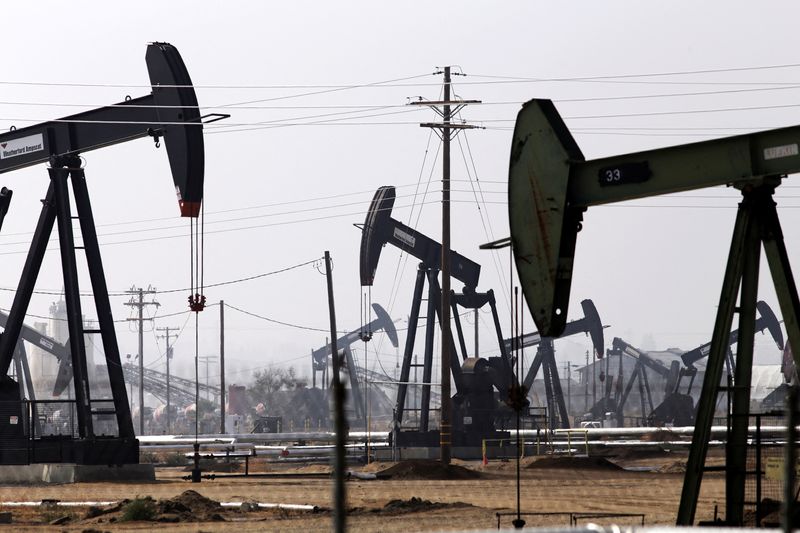By Stephanie Kelly
NEW YORK (Reuters) - Oil prices rose more than 2% on Monday to the highest level since late November on hopes that the Omicron coronavirus variant will have a limited impact on global demand in 2022, even as surging cases caused flight cancellations.
Global benchmark Brent crude rose $2.46, or 3.2%, to settle at $78.60 a barrel. U.S. West Texas Intermediate (WTI) crude rose $1.78, or 2.4%, to settle at $75.57 a barrel. The U.S. market was closed on Friday for a holiday.
Both benchmarks rose on Monday to the highest since Nov. 26. On that day, oil plunged by more than 10% when reports of a new variant first appeared. The benchmarks gained last week after early data suggested that Omicron could cause a milder level of illness.
"Though Omicron is spreading faster than any COVID-19 variant yet, a relatively relieving news is that most people infected with Omicron are showing mild symptoms, at least so far," said Leona Liu, analyst at Singapore-based DailyFX.
Britain's government will not introduce new COVID-19 restrictions for England before the end of 2021, its health minister, Sajid Javid, said on Monday.
More than 1,300 flights were cancelled by U.S. airlines on Sunday as COVID-19 reduced the number of available crews while several cruise ships had to cancel stops.
"The disruption to goods and services from isolating workers, notably air travel, seems to be the main fallout so far," Jeffrey Halley, analyst at brokerage OANDA, said of rising Omicron cases. "That is only likely to cause short-term nerves, with the global recovery story for 2022 still on track."
Oil prices have risen over 50% this year, supported by recovering demand and supply cuts by the Organization of the Petroleum Exporting Countries and its allies, collectively known as OPEC+.
Talks resume on Monday between world powers and Iran on reviving Tehran's 2015 nuclear deal. Iran said oil exports were the focus of the talks, which so far appear to have made little progress on boosting Iran's shipments.

Also on investors' radar is the next OPEC+ meeting on Jan. 4, at which the producer alliance will decide whether to go ahead with a planned 400,000 barrels-per-day (bpd) production increase in February.
OPEC+ stuck to its plans at its last meeting to boost output for January despite Omicron.